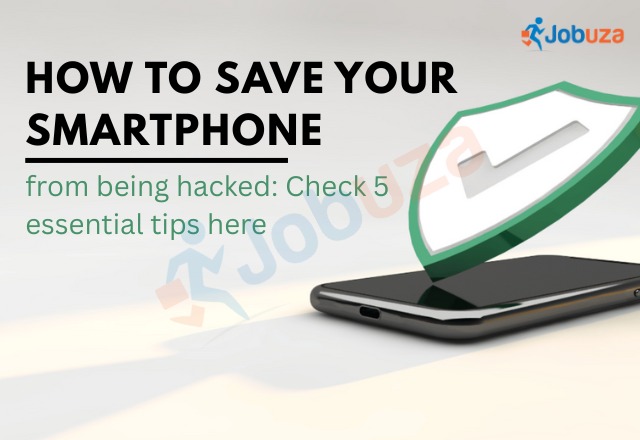How to Protect Your Smartphone from Hacking: 5 Essential Security Tips
Your smartphone isn’t just a device—it’s a gateway to your personal and professional world. From banking apps and emails to social media profiles and work documents, almost everything in your life is connected to your phone. Unfortunately, this also makes it a prime target for hackers and cybercriminals.
Without your knowledge, attackers can infiltrate your device and gain access to sensitive data. With most apps interconnected, a single breach can compromise your entire digital identity. As cybercriminals develop smarter techniques, protecting your smartphone has become more important than ever.
To keep your data safe, follow these five essential tips to secure your phone from hacking.
1. Keep Your Software Updated
Regularly updating your smartphone’s software is one of the simplest yet most effective ways to stay protected. Updates include security patches that fix vulnerabilities hackers often exploit.
-
Always update your operating system and apps to the latest versions.
-
Turn on automatic updates so you don’t miss important security fixes.
-
Keep your antivirus and security tools up to date for better protection.
2. Use Strong and Unique Passwords
Weak or reused passwords make it easier for hackers to gain access to your accounts. To strengthen your security:
-
Create complex passwords with a mix of letters, numbers, and symbols.
-
Avoid using the same password for multiple accounts.
-
Use a trusted password manager to generate and securely store strong credentials.
This ensures your personal and financial data stays protected even if one account is compromised.
3. Enable Two-Factor Authentication (2FA)
Two-Factor Authentication adds an extra layer of security to your accounts. With 2FA enabled, logging in requires:
-
Your password plus
-
A second verification step, like a code sent via SMS, email, or an authentication app.
This makes it much harder for hackers to access your accounts—even if they somehow manage to steal your password.
4. Beware of Scams and Phishing Attacks
Cybercriminals often use phishing tactics to trick you into giving away personal information. Stay alert by:
-
Avoiding suspicious links in texts, emails, and social media messages.
-
Verifying the sender before clicking on any link.
-
Never sharing sensitive information, like passwords or bank details, with unknown contacts.
A single careless click can expose your entire digital identity, so always double-check before you act.
5. Secure Your Wireless Connections
Unsecured networks are one of the easiest ways for hackers to access your data. Protect your wireless connections by:
-
Setting strong, unique passwords for your home Wi-Fi.
-
Avoiding public Wi-Fi networks unless you use a trusted VPN.
-
Turning off Bluetooth and Wi-Fi when they’re not in use.
This minimizes the chances of unauthorized access and keeps your data safe from cyber threats.
Final Thoughts
Smartphones have become an essential part of our daily lives, but their increasing importance also makes them a bigger target for hackers. By following these five simple tips—keeping software updated, using strong passwords, enabling 2FA, staying cautious against phishing, and securing your wireless connections—you can protect your personal and professional data from cybercriminals.
Taking a few preventive measures today can save you from major security risks tomorrow.



